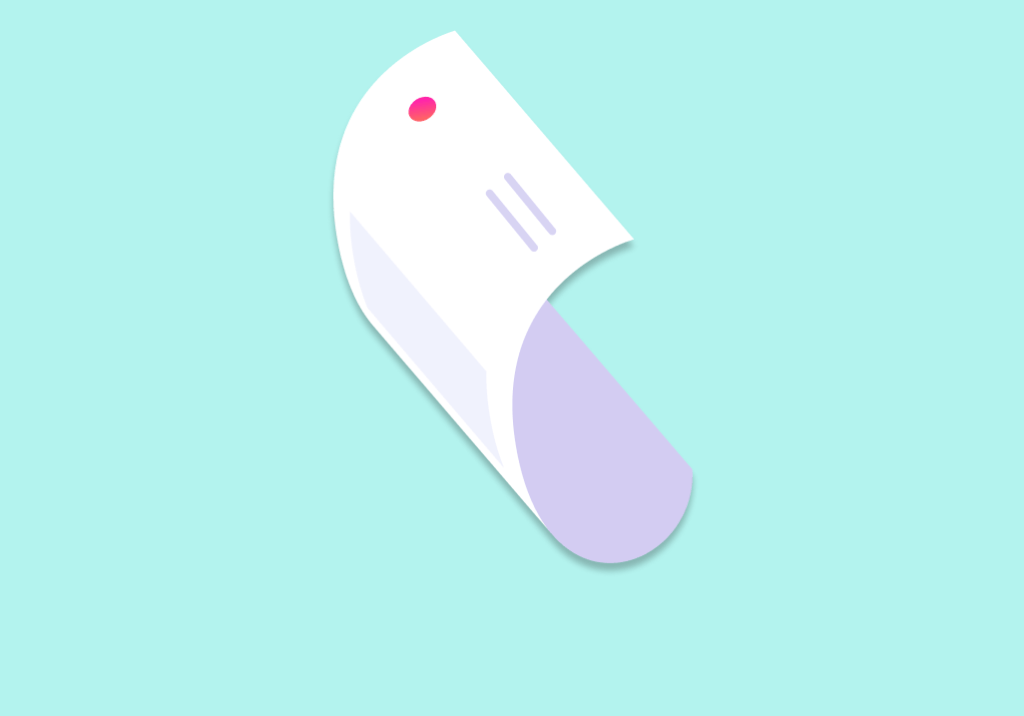The Kleinunternehmer, or small business designation, is often a blessing for many freelancers, especially at the beginning of their time of self-employment. Belonging to this category of freelancer means you are exempt from paying VAT, which means you can offer lower prices to your customers and won’t need to submit a VAT return.
However, there are also some good reasons for registering to pay VAT. Here we explain when it is a good idea to become a Kleinunternehmer versus when paying VAT is more advantageous.
But first: What is value-added tax (VAT)?
In Germany, VAT is generally charged on all products or services. Companies must pay this tax to the state, and the corresponding tax rate for the end consumer is reflected in the prices. The standard VAT rate is 19%, but there is a reduced tax rate of only 7% for, for example, journalistic products such as newspapers and books. As a final consumer, we see the corresponding surcharge of the VAT on the purchase of goods or services listed on the invoice as VAT.
🔖 Due to the Corona crisis, the German government decided to temporarily reduce VAT rates from 1 July to 31 December 2020, in order to save consumers a little money. The temporary VAT rate is 16% with a reduced rate of 5%.
Businesses must list any VAT they have charged in their VAT return. At the same time, those who are self-employed can also reclaim operating expenses to reduce their tax burden. These costs might include a business meal, work-related travel or the purchase of work equipment such as printer paper or even computers.
💡 Tip: With our expenses calculator, you can easily check whether you can deduct an expense from your income tax return.
What is the small business rule?
There is an exception in German tax law that exempts companies and freelancers from paying sales tax: the small business regulation, or Kleinunternehmerregelung. You can apply for this directly when you register your freelance work or found your company. All you need to do is tick the appropriate box on the tax registration application (Fragebogen zur steuerlichen Erfassung), which all self-employed persons have to fill in before starting their business.
Alternatively, you can take advantage of the small business regulation later. All you need to do is contact your local tax office.
💡 If you do not wish to apply to be a Kleinunternehmer until after you have started working as a self-employed person, it might be worth submitting the application at the beginning of a new calendar year. This means that the designation will apply for the entire year and you do not need to bother with trying to pay VAT for individual months.
How do I qualify as a small business owner?
You can be considered a small business if you did not earn more than 22,000 EUR in the first year you apply, and your income does not exceed 50,000 EUR in the following year. The limit for the first year was raised from 17,500 EUR to 22,000 EUR on 1 January 2020.
It’s important that your income stays under the relevant limit in order for you to continue being classed as a small business the following year.
Here are a few calculation examples:
– Example 1
You earned 15,000 EUR in the first year and expect to earn 20,000 EUR in the second year. So you will remain a small business in the third year.
– Example 2
You earned 20,000 EUR in the first year and are expected to earn 52,000 EUR in the second year. So from the third year on you are no longer a small business owner and will have to pay VAT from then on.
– Example 3
Against all expectations, you earned 25,000 EUR in the first year. So the small business regulation applies for the first year, but you will have to pay VAT from the second year onwards.
– Example 4
You earned 20,000 EUR in the first year and are expected to earn 30,000 EUR in the second year. So from the third year on, you are no longer a small business and do have to pay VAT.
When should I make use of the Kleinunternehmer classification?
There are various reasons for taking advantage of Kleinunternehmer status.
✔️ The majority of your customers are private individuals
For newly-minted businesses, it can be a huge obstacle having to add sales tax to your prices. If the customer base consists primarily of private individuals, that means they cannot reclaim the VAT and therefore have to dig deeper into their own pockets for your products or services.
This puts you at a disadvantage compared to your competitors, who may be able to offer lower prices due to them being registered as a Kleinunternehmer. Therefore, if your customer base is largely made up of private individuals, you may benefit from becoming a Kleinunternehmer.
✔️ You want to keep your accounting costs as low as possible
Let’s be honest: Most people don’t enjoy dealing with their taxes. So it can come as a relief to have one less tax task to take care of – like submitting VAT returns, which are generally submitted to the Finanzamt on a monthly or quarterly basis.
💡 Tip from Accountable: If you can’t be a Kleinunternehmer, there’s no need to panic. With our app, you can easily prepare your VAT returns and send them directly to your local tax office, in just a few minutes, with little cost.
✔️ You have no major business expenses
One advantage for companies that have many operating expenses is that they can reclaim the VAT paid on these work-related purchases. However, if you have very few expenses for carrying out your self-employment, then being a Kleinunternehmer may still be more profitable for you. If you don’t have many – or any – business costs, then you will not suffer any financial disadvantage from not being able to claim the VAT.
